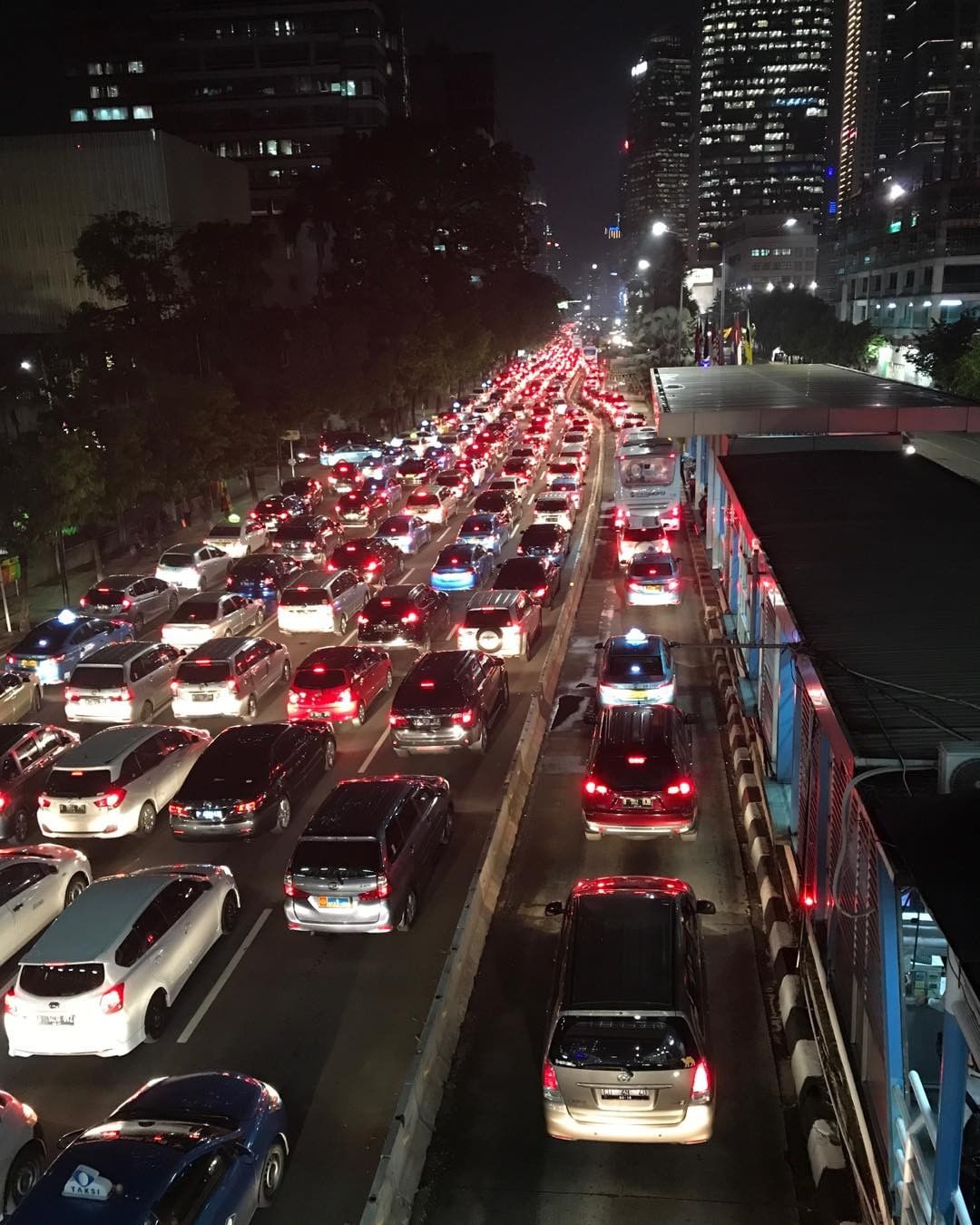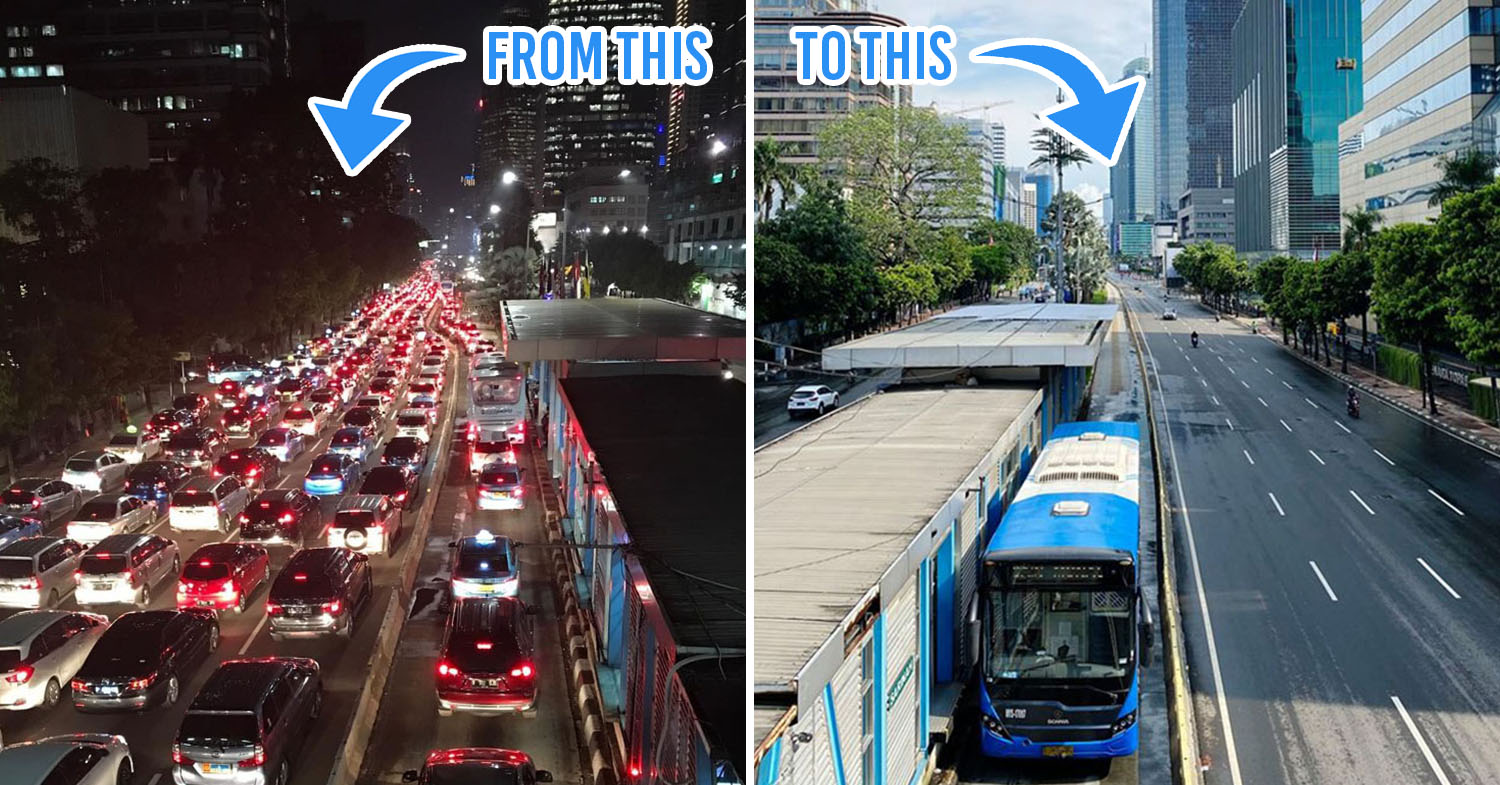Jakarta has become more pedestrian-friendly
Jakarta’s congested streets are one of the most challenging things about living in this city. According to the TomTom Traffic Index, Jakarta is at number 10 out of 416 cities. Visitors from other parts of Indonesia or other countries may have also experienced how stressful the traffic situation can be.
But three weeks after a chunk of the Jakarta population started to study and work from home to curb the spread of COVID-19, the streets have become noticeably more quiet.
An invitation to rethink the city’s infrastructure

Thamrin in April 2017
Image credit: @aiipon
Traffic congestion doesn’t only cause air and noise pollution, but it also adds to the stress of working people in Jakarta. If an eight-hour workday wasn’t enough to make you tired, try adding another three-hour round trip between your workplace and your home.
Though public transportation systems such as the Transjakarta and the recently operational MRT do exist, many of the city’s residents still rely on private cars and motorcycles to get around. It doesn’t help that with the exception of several districts, Jakarta doesn’t have enough proper sidewalks.

Sarinah intersection on 2nd April 2020
The sight of the empty, if not rather eerie streets of Jakarta shows an image that most of us living here couldn’t even conjure in our minds before the pandemic forced us to stay inside.

ASEAN MRT Station on 2nd April 2020
Now that we can see what a city that doesn’t depend on private vehicles can look like, urban planners and city authorities will hopefully start to have serious talks about improving the city’s infrastructure so that people have better access to public transportation and public spaces in the near future.

Transjakarta bus lanes in Thamrin on 2nd April 2020
It’s also crucial to note that walking has a positive impact on our mental and physical well-being, meaning that access to safe sidewalks, bridges, and other footpaths won’t just reduce pollution, but also keep everyone healthier.
Hope for the future of Jakarta

Thamrin Transjakarta bus stop on 2nd April 2020
While Indonesians and the rest of the world are preoccupied with the unprecedented COVID-19 crisis, we can hope that its aftermath will help everyone come up with ideas to improve Jakarta’s infrastructure.
This way, we won’t only be prepared to face any possible major public health crisis that may come, but can also enjoy an improved quality of life.
Check out our full Jakarta photo album taken during the COVID-19 period here.
For more articles:
- Indonesian authorities disinfect Jakarta streets
- 8 Indonesian online shopping websites
- 8 Jakarta cafes to get your morning coffee
Cover image adapted from: @aiipon and TheSmartLocal Indonesia
Enjoying The Smart Local Indonesia? Follow us on Facebook, Instagram, and Twitter for more stories like this. If you have a story to share, email us at [email protected].
